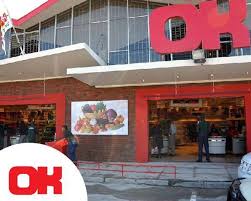Speaking at a conference on Zim-DRC business forum held at the Zimbabwe Agricultural Show in Harare yesterday, ZimTrade chief executive officer Mr Allan Majuru said there was need to grow exports to DRC, adding that value addition and beneficiation was critical so that the country achieved the real value of the exports.
Precious Manomano-Herald Reporter
Bilateral trade relations between Zimbabwe and Democratic Republic of Congo (DRC) continues to improve, with local companies being urged to unlock the vast opportunities in the DRC as the Second Republic’s Agriculture Food Systems Transformation Strategy and other related policies continue to bear fruits.
Zimbabwe is exporting commodities worth over US$60 million annually to DRC, with local businesses urged to utilise opportunities presented in regional markets to secure strong footprints on the continent.
Some of the commodities that are exported to DRC include cereals, treated timber and fresh produce.
Speaking at a conference on Zim-DRC business forum held at the Zimbabwe Agricultural Show in Harare yesterday, ZimTrade chief executive officer Mr Allan Majuru said there was need to grow exports to DRC, adding that value addition and beneficiation was critical so that the country achieved the real value of the exports.
He emphasised that Zimbabwe should diversify products to stimulate competition and become a real bread basket for Southern Africa.
Mr Majuru said there was need to scale up exports, taking advantage of the massive opportunities that prevail in DRC and other neighbouring countries.
‘’We need to grow our exports,” he said. “Trade is a two way, as we would want to export to DRC, we also want DRC to export goods and services to Zimbabwe. We are exporting more to DRC than what we are getting from our counterparts, but the thing is the amount of business we are doing in DRC is very low.
“We have a good history in DRC, the political relations are good. They speak a language which is close to Shona. We do not need a visa to go to DRC, so what we need to work on are the logistical routes to make sure that we have cargo planes and passenger aeroplanes to move so that we integrate our trade.’’
Mr Majuru said the country was now exporting more raw materials, adding that there was need for more investments to look at how to value add raw materials and commodities to ensure that real value was extracted.
He emphasized that the country had potential to export fertilizer and seeds, adding that businesses should capitalize on the good relations between the two countries.
ZAS chief executive Dr Andrew Matibiri said the relationship with the DRC was cordial. “We encourage the DRC delegation to participate in future additions for the ZAS to ensure continuity of the events of the results that come from such engagements,” he said. “As a show society we stand ready to welcome and assist more companies from DRC to participate at the show and to exhibit.”
DRC Haut Katanga director general Mr Mukolay Nsenga Sonkue said the relationship between the two countries should benefit all, adding that there was need to continue working together.
He said sandy soils and a variety of minerals underground, lakes and rivers were critical in promoting agriculture and the mining sector.
‘’The environment is conducive for farming and agriculture,” said Mr Nsenga. “Come and experience a lot of resources that can host any kind of agricultural activities. Vegetation is favourable for livestock rearing . We have potential to do more because we have a lot of dams and rivers.
“Present opportunities which are currently there include beans, sweet potatoes, sugarcane and pineapple and fish is also available. We also have construction materials which include rubble and cement.”
Mr Nsenga said value addition of minerals was needed, adding that mining was the major element followed by agriculture.
He appealed for local companies to help with packaging of their produce also emphasising that recycling units are also needed so as to manage the waste.
Mr Artwell Dumba from Lobel’s indicated that they started to export biscuits to DRC in the Katanga province, but now they were cascading to other provinces.
Zimbabwean Government is committed to continuous engagement to boost international trade.
The skills and expertise within Zimbabwe presents a unique selling proposition for trade between the two countries.
Source ZimSituation












